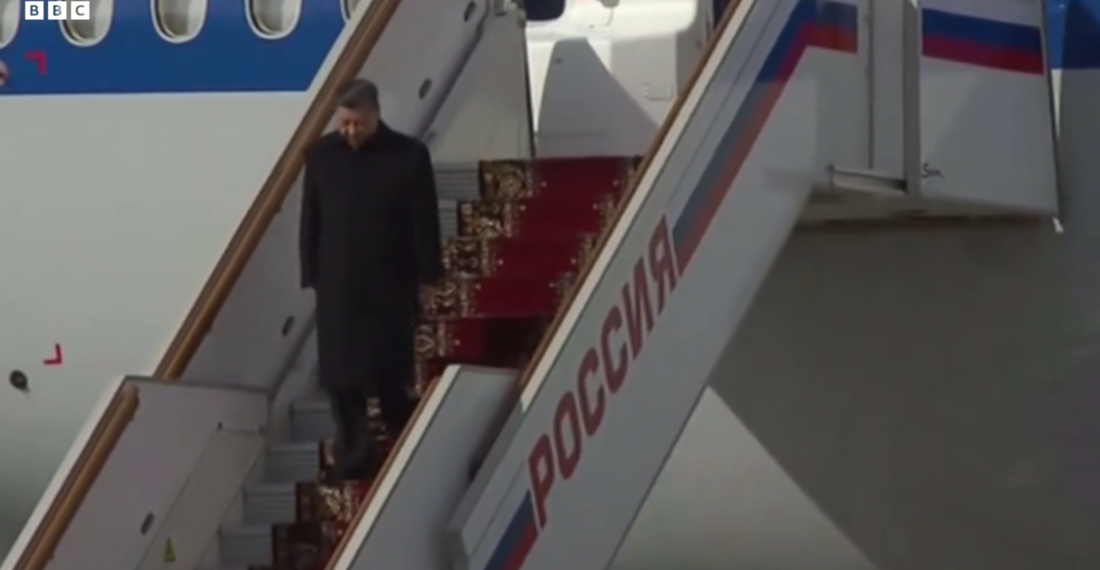The Chinese President Xi Jinping has arrived in Moscow for face-to-face talks with Russian President Vladimir Putin on Monday (20 March).
Both the Kremlin and China's foreign ministry have been tight-lipped about the purpose of the trip, revealing only that Xi and Putin will discuss a "comprehensive partnership and strategic co-operation", adding that Xi will be in Moscow until Wednesday.
The visit comes only days after the International Criminal Court in The Hague issued Vladimir Putin with an international arrest warrant for alleged war crimes, namely the unlawful deportation of people, including children, from Ukraine to Russia.
Xi Jinping is scheduled to have lunch with the Russian President before an informal one-to-one meeting this afternoon, while formal talks with delegations are planned for tomorrow.
China's stance on the Russian invasion of Ukraine has been ambiguous
Ever since 24 February 2022, China's stance over the full-scale Russian invasion of Ukraine has been somewhat ambiguous. China has neither openly welcomed the war, nor openly criticised Russia.
Less than a month ago China also published its own 12-point peace plan to bring the war in Ukraine to an end, calling for peace talks and respect for national sovereignty.
However the document does not call for Russian troops to completely leave Ukraine, and it condemned "unilateral sanctions" in what what seen as a veiled criticism of the West's increasing isolation of Russia over the last year.
There has recently also been concern among world leaders that China may consider supplying Russia weapons following a "no limits" partnership that was agreed between the two countries shortly before Russia's February 2022 invasion. Beijing has denied considering sending Russia weapons.
The Chinese Foreign Ministry's spokesperson Wang Wenbin has said that Xi's visit was a "trip for friendship, cooperation and peace".






